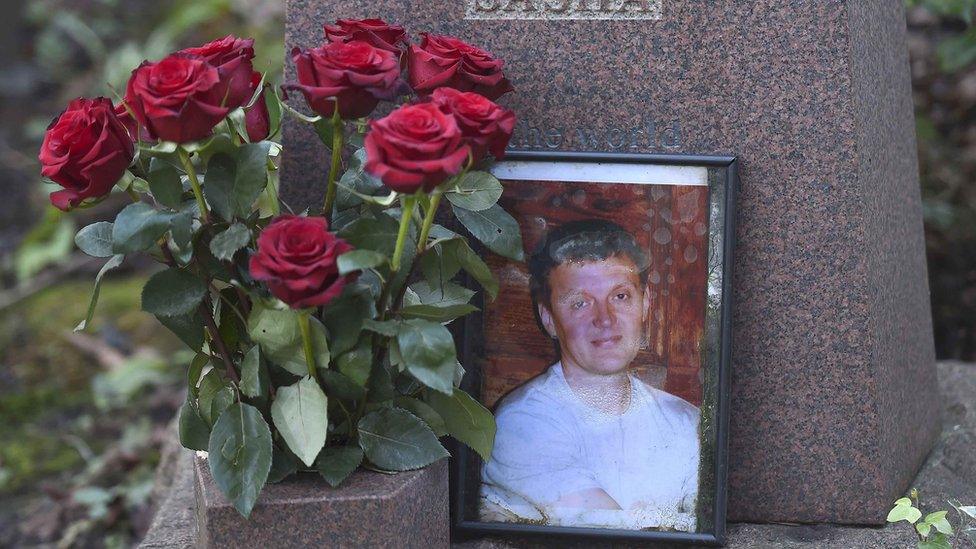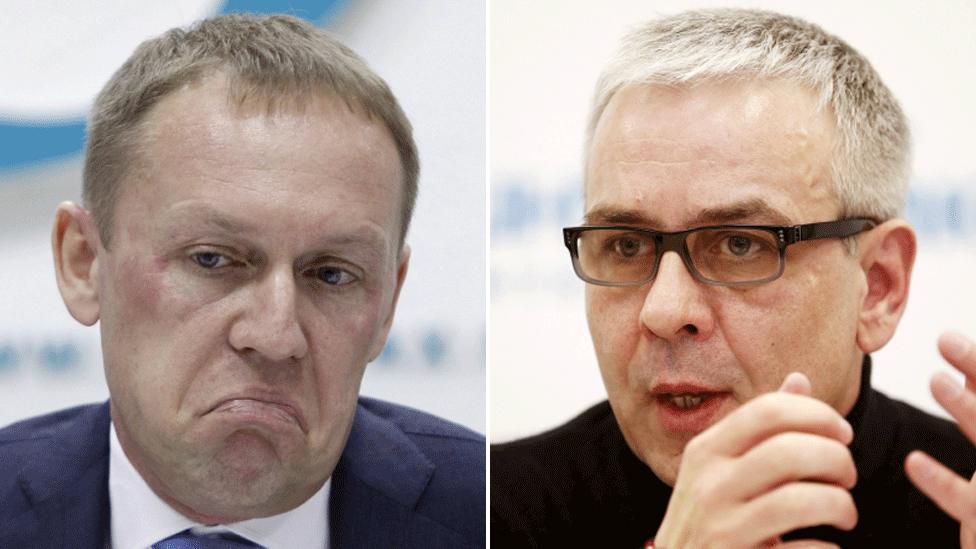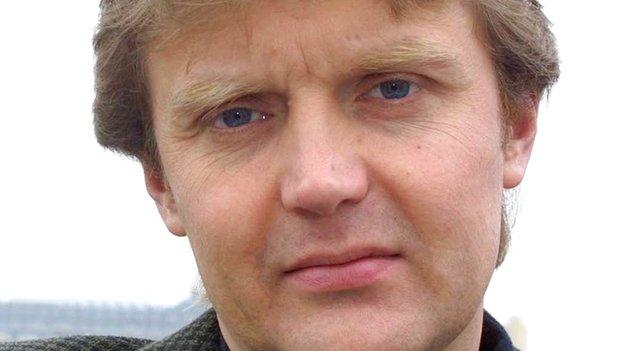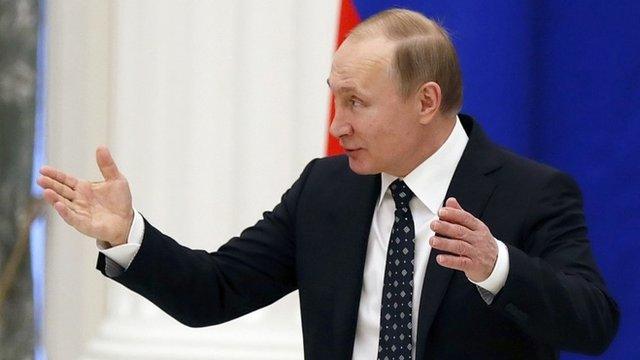Litvinenko inquiry: Russia derision at 'joke' report
- Published
Andrei Lugovoi: "I've seen the nonsense conclusions of your judge, who has clearly gone mad"
The Litvinenko report is "nonsense" and the inquiry chairman has "gone mad".
That was the conclusion of one of the key suspects in the murder of former Russian spy Alexander Litvinenko, in a rare interview with the BBC.
Speaking by phone from southern Russia, Andrei Lugovoi derided the inquiry process as politicised and opaque, and in doing so echoed a whole series of officials here.
Their reaction follows a now familiar pattern.
Whether it is "little green men" taking over Crimea, the shooting down of Flight MH17, or this, a radioactive poisoning, officials in Moscow calmly shrug off any suggestion of involvement.
Russia has become a master of denial.
Serious claims are dismissed as part of a political campaign against Russia and their substance is duly ignored.

The Litvinenko case
23 November 2006 - Mr Litvinenko dies three weeks after having tea with former agents Andrei Lugovoi and Dmitri Kovtun in London
22 May 2007 - Britain's director of public prosecutions decides Mr Lugovoi should be charged with his murder
5 July 2007 - Russia refuses to extradite Mr Lugovoi, saying its constitution does not allow it
May-July 2013 - The inquest into Mr Litvinenko's death is delayed as the coroner decides a public inquiry would be preferable - but ministers rule out the request
11 February 2014 - High Court rules the Home Office was wrong to rule out an inquiry before the outcome of an inquest
January 2015 - Public inquiry begins

"This is not transparent, not objective or unbiased," foreign ministry spokeswoman Maria Zakharova told a weekly press briefing, shortly after the public inquiry into Mr Litvinenko's death reported its findings.
A long-time Kremlin critic, it transpired Mr Litvinenko had also been working for British intelligence agency MI6.
The report concluded he was the victim of a Russian state-backed assassination and argued that such an operation was "probably" carried out with a nod from President Putin.
Why would Vladimir Putin want Alexander Litvinenko dead?
Here, people have leapt on the language.
"Words like…'probably' mean there is no evidence or clear claims," Andrei Lugovoi insisted.
Almost 10 years after the killing, he said "there is just supposition, invention and rumours".
Mr Putin's spokesman called the whole process a "joke", warning that it could "poison" relations with London.
That was the broad message driven home via state-controlled television, which portrayed the inquiry as a farce.
Bulletins glossed over the claim President Putin was involved, downgrading "probably" in translation, to "possibly".
That is partly why there is no public clamour for the truth here.
But Russians are also preoccupied. On Thursday the rouble collapsed to a new record low; inflation is in double-digits. So there is little discernible concern over a murder abroad, almost a decade ago.
Of 15 people we questioned at random, only half knew who Litvinenko was and most dismissed the idea their president had any hand in his killing.
"I think Putin has proved himself around the world to be a respectable person, so he wouldn't spoil his reputation," one woman commented.
Strikingly, no-one even questioned the concept of wiping out a political opponent; their only doubt was over Mr Putin's actual role.
So far, limited sanctions have been announced in response to the Litvinenko killing: just an asset freeze for the two key suspects.

Mr Litvinenko died in 2006 after being poisoned with a radioactive substance
As the UK considers more, it is wary of ripping up relations and Moscow knows that.
This is even more true now that Russia has deployed fighter jets in Syria, ensuring it has a say in any peace settlement there.
But the relationship had been strained for a long time.
And as for the UK's desire to see those responsible for this audacious killing brought to trial, the prospect looks as remote as ever.
"It's more likely that the moon will become part of the earth, than that I will be extradited from Russia. It's just not possible," Andrei Lugovoi asserted.
He was speaking from Sochi where he's filming for his TV show called Traitors.
The latest theme is the ill-fate of Russian spies who defected to the UK, and began collaborating with British intelligence.
- Published21 January 2016

- Published21 January 2016

- Published21 January 2016
